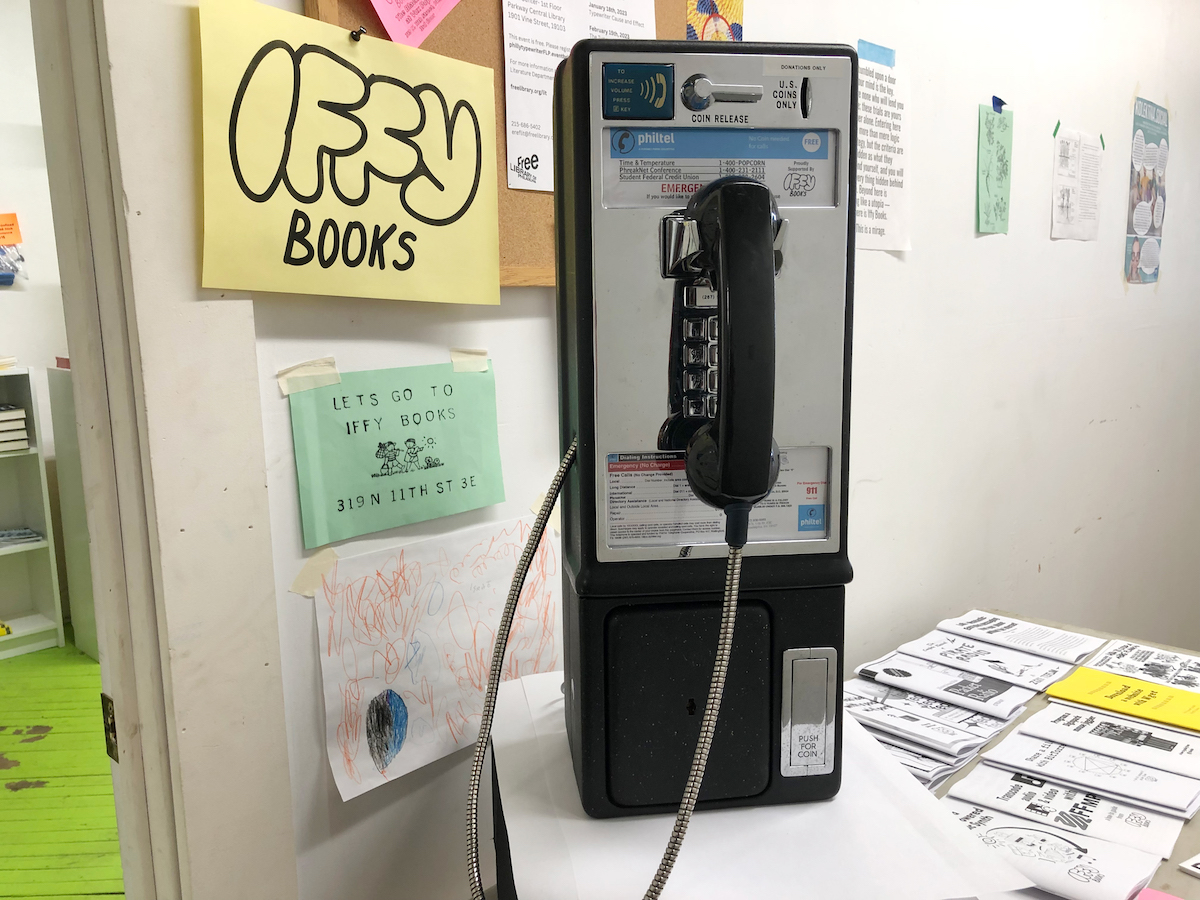“I think it’s the case with hobbies, you might try to explore outside your day job,” he said.
It’s true of the PhilTel project, which Dank started with cofounder Naveen Albert last summer. The pair are retrofitting old pay phones with voice over internet protocol (VOIP) devices — hardware that will let a user make a call for free, with internet access.
Dank, who lives in Delaware County, first heard of a similar project in Portland, Oregon a few years ago. In 2014, a Portland resident erected a free, public phone on his property. The interest grew, as did the collection of phones, in a project now called Futel.
Dank himself was always “tinkering” with older forms of technology in order to learn more “obscure bits” of computing and decided to try out the Futel technology on an old payphone he had in his basement, he said.
Dank met cofounder Albert through a website Dank runs, networksofphilly.org. The 21-year old University of Pennsylvania student has some personal stake in this project: He doesn’t have a cell phone, and instead uses a landline in his dorm room as his main form of communication. When he’s out in public, Albert relies mainly on the remaining few pay phones in Philadelphia.
“There’s this idea where if you have a smartphone, you’re always on and connected, and a lot of people don’t like it,” Dank said.
PhiTel has installed one of these VOIP-outfitted phones in public so far, at Iffy Books at 319 N. 11th St. in Callowhill. Since the pair installed it in December and have done some press about the project, they’ve gotten lots of inquiries about donating phones and offers to host a phone at local businesses or on private property.

Though Dank already had this phone sitting in his basement, as the duo looks to expand, the project will cost about $600 per phone — half for the pay phone and half for the VOIP hardware. The cost of service is extremely low, Dank said, even a tenth of a cent for a minute-long call.
Dank said issues of privacy and the always-connected nature of Big Tech in recent years have absolutely influenced this project and others he’s worked on. Last year, he played around with creating his own dial-up internet, and now PhilTel follows a similar, lower-tech telephony thread.
“Not only is it that you’re always connected, you have companies trying to data mine you and advertise to you constantly,” Dank said of smart phones. “Going low-tech gives you your privacy and anonymity back.”
The PhilTel phones also touch on an important aspect to many Philadelphians — accessibility. The cofounders looked at research that shows 97% of Americans have a cell phone, which seems like a lot, Dank said. But extrapolated to Philadelphia, that means there could be as many as 50,000 residents who do not have one. As pay phones continue to disappear, that’s thousands of people who are losing access to low-cost communication.
The pair will continue to outfit phones as they receive donations and find public places to post them.
“At the end of the day, it’s half art and half community service,” Dank said. “There’s a joy I get and Naveen gets to make this possible technologically, but at the same time, there’s a lot of people that could benefit from it.”







